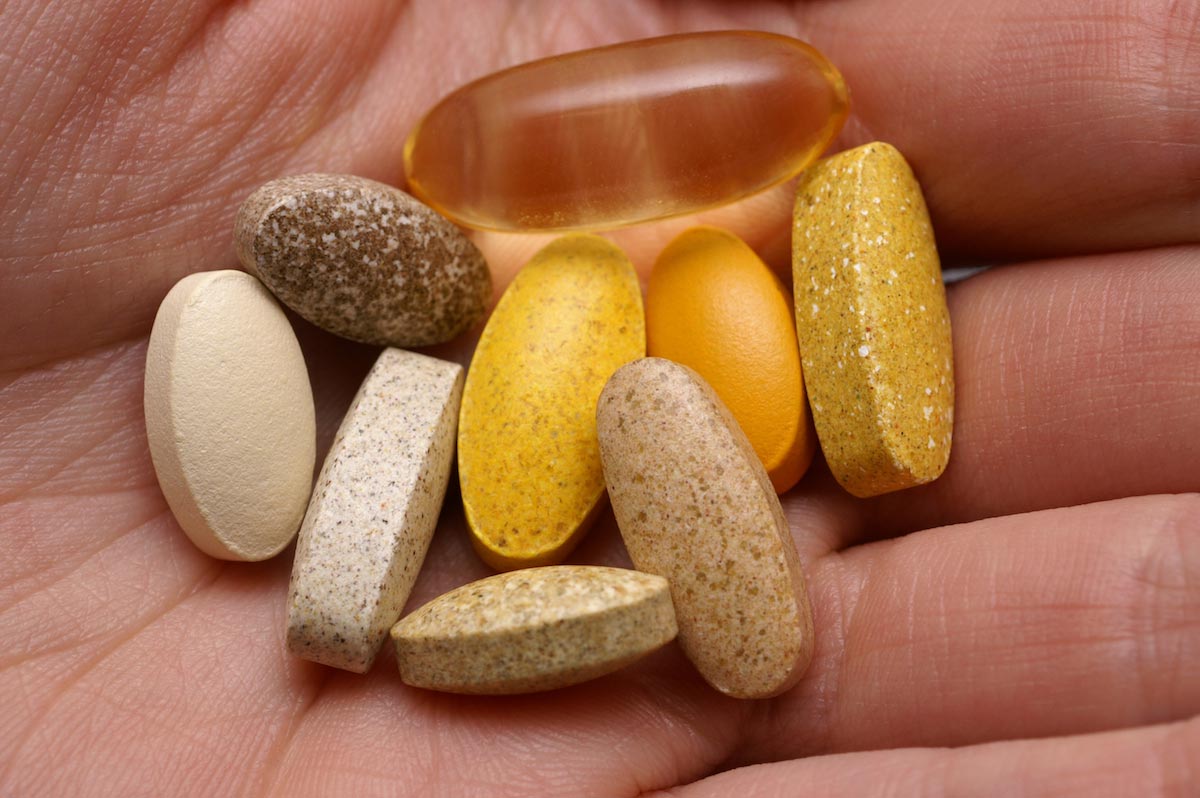A worldwide health problem: Numerous studies warn that low levels of vitamin D can increase premature death and disease risks
06/30/2020 / By Zoey Sky

Vitamin D is essential for your overall health, but there are only a handful of natural sources of this vitamin.
According to several studies, supplementation is important because vitamin D deficiency is linked to an increased risk of premature death, particularly if your blood levels of vitamin D are lower than 30 nanograms per milliliter (ng/mL).
Vitamin D supplementation and risk of deficiency
There aren’t a lot of natural food sources of vitamin D, so you may find it hard to meet your Recommended Daily Intake (RDI) without regular sun exposure.
You need sun exposure because, unlike other vitamins, vitamin D is a hormone that can only be produced by your skin after it is triggered by UVB rays from the sun.
According to several studies, vitamin D plays an important role in bone health, immune function and cancer prevention. Hence, maintaining healthy levels of vitamin D is crucial for your well-being.
The elderly, people with dark skin, people who are overweight and people who live in places with limited sunlight have a high risk of developing vitamin D deficiency.
In America, at least 42 percent of adults have vitamin d deficiency. Thankfully, taking supplements is an effective way of meeting your vitamin D needs.
How vitamin D deficiency affects your health
Vitamin D deficiency is linked to several adverse effects, such as:
- Diabetes – A study published in the Journal of Clinical Endocrinology & Metabolism reported that those with diabetes or prediabetes have lower vitamin D levels than healthy individuals. It is also believed that both obesity and vitamin D deficiency “interact synergistically” to increase your risk of diabetes and other metabolic disorders.
- Heart disease – In a separate study also published in the Journal of Clinical Endocrinology & Metabolism, scientists found that people with low vitamin D levels were thrice as likely to die because of heart failure and five times as like to suffer from sudden cardiac death.
- Obesity – Obesity is linked to deficiency because weighing too much can limit your body’s ability to use vitamin D.
- Premenstrual syndrome (PMS) – Based on the findings of the Nurses’ Health Study II, high intake of vitamin D in women aged between 27 and 44 may be linked to a lower risk of PMS.
Maintaining healthy vitamin D levels can help you prevent serious health problems, such as rheumatoid arthritis and celiac disease. Patients with these conditions are also deficient in vitamin D; this can cause other health complications that may ultimately lead to premature death. (Related: 7 Deadly diseases caused by vitamin D deficiency.)
The regular intake of vitamin D helps minimize disease risk and improve quality of life. Vitamin D is essential to your overall health because:
- It improves bone density and mineralization.
- It improves genetic expression.
- It increases natural killer cell activity.
- It minimizes overall inflammation.
How to boost your vitamin D intake
First, bask in natural sunlight. Studies show that sunscreen-free sun exposure helps boost overall health and is the best way to get your daily dose of vitamin D.
You need at least 20 minutes of direct sun exposure for your skin to naturally produce vitamin D.
How to supplement with vitamin D
Vitamin D is a fat-soluble vitamin that you need to obtain from foods rich in “good” fats. Studies suggest that taking vitamin D during your largest meal of the day improves absorption, which helps increase serum levels of the vitamin.
When taking supplements, take vitamin D’s most bioavailable form, vitamin D3. For optimum vitamin D3 absorption, you need to supplement with vitamin K2, which is the more biologically active form of vitamin K.
Y0u can also consume natural food sources of vitamin D3, such as:
- Cod liver oil
- Egg yolks
- Mackerel
- Salmon
- Sardines
- Raw milk
If you have vitamin D deficiency, you will also require supplementation to boost your vitamin D levels.
If you’re taking prescription drugs, you need to boost your vitamin D intake
People who take corticosteroids need to boost their intake of vitamin D3 because this drug interferes with the absorption of vitamin D.
If you’re not sure how much of the vitamin you need, ask an integrative healthcare provider to perform a 25 hydroxyvitamin D blood test. This will help you determine how much vitamin D you need to stay healthy.
Get regular sun exposure, follow a balanced diet and take natural supplements to boost your vitamin D intake and lower premature death and disease risk.
Sources include:
Tagged Under: diabetes, heart disease, natural health, nutrients, nutrition, obesity, premenstrual syndrome, sunlight, supplements, vitamin D, vitamin D deficiency
RECENT NEWS & ARTICLES
COPYRIGHT © 2017 LONGEVITY NEWS


















